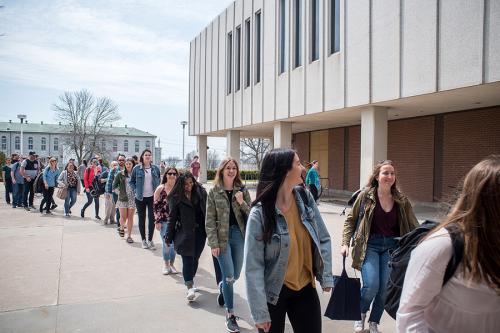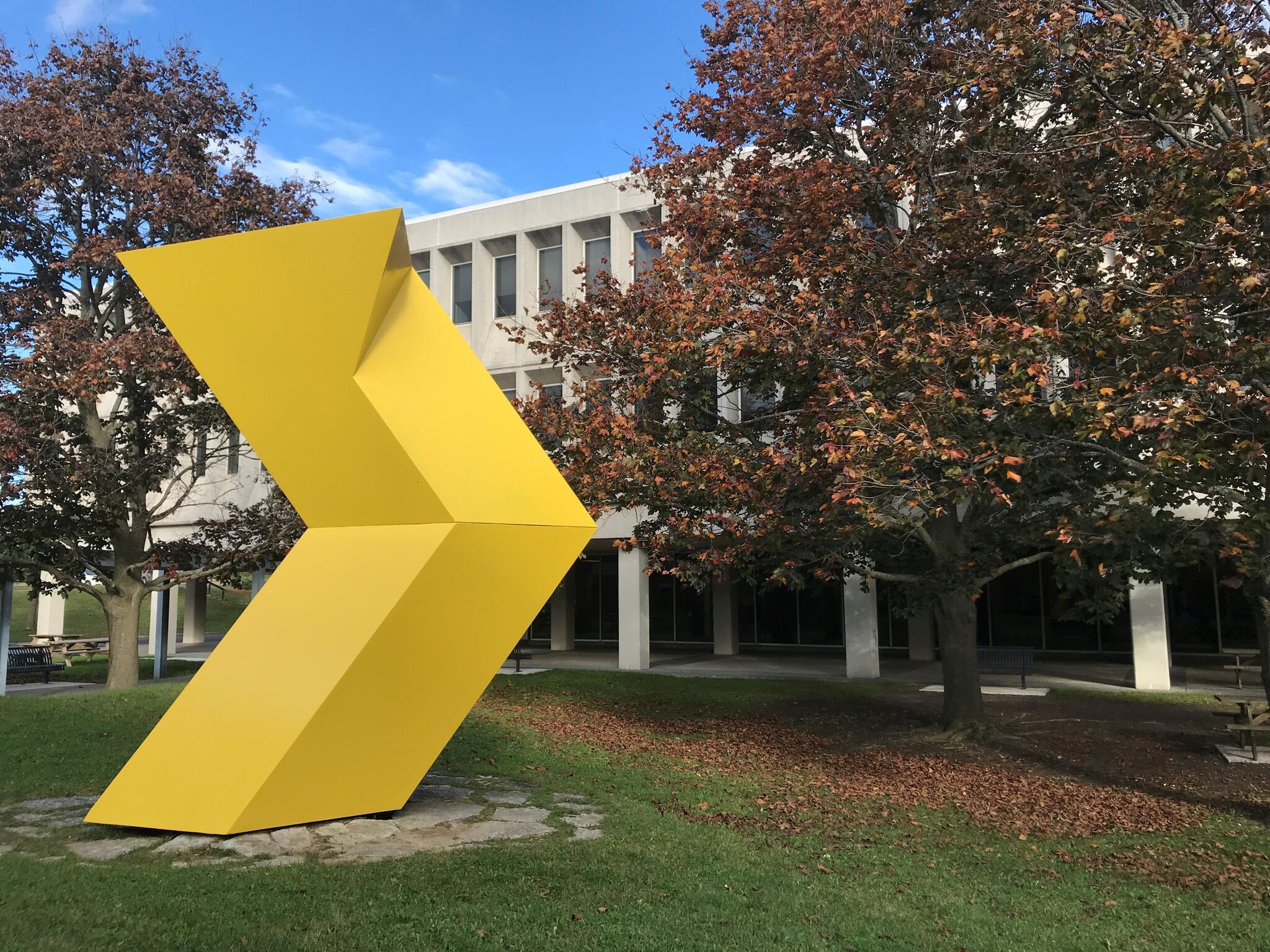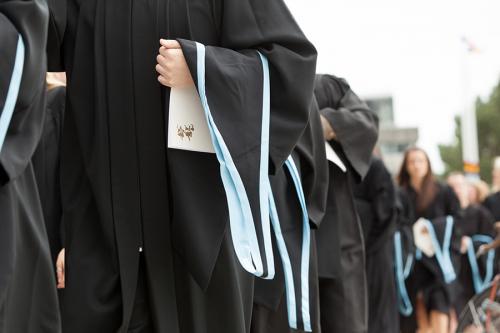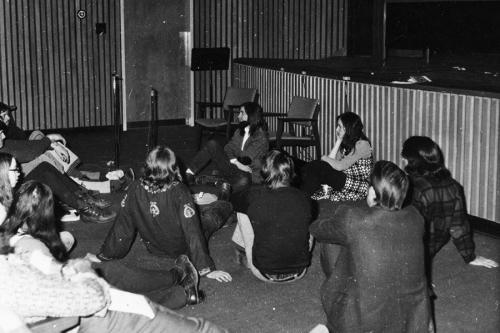At the Faculty of Education, Queen's University, our undergraduate and graduate students explore and examine teaching and learning from a variety of perspectives across diverse contexts. Our inclusive community, along with our international connections, provides students with exciting cross-cultural learning opportunities. Our graduates are ready to integrate theoretical, practical, and experiential knowledge in the understanding and resolution of professional issues. We see the beginning teacher as an active agent in the development of a socially inclusive pedagogy aimed at social justice. In our vision, the critically reflective teacher asks questions that go beyond immediate pressures of daily practice, and has a disposition to work in collaboration with other members of the profession and with all those involved in the education and development of learners.
Tsi nón:we ne shakotirihonnién:ni ne Queen’s University, ne hárok tha’tehonatohétston tánon ne ó:nen tehonatohétston ronteweiénstha ratiri’wí:saks tánon kwah tokén:en ratikaén:ions tsi ní:ioht tsi ashakotirihón:nien tánon nia’té:kon tsi nitiotierá:ton tsi ronteweiénstha tsi nenhatí:iere. Skátne ne onkwanakerahserá:kon tánon ne tsik nonwéhshon, enhotiiénta’ne ne ronteweiénstha nia’tékon ne tekonttihá:nion tsi nihotirihó:tens ahonteweiénste. Ne tehonatohétston ronatateweienentá:on ki’ ne ia’tahatí:ieste tsi nahò:ten ronateweiénston, tsi nihotiié:ren tsi rotiweientehtá:on’ ahoti’nikonhraién:ta’ne tánon ia’tahotirihwaién:ta’se ashakotina’tónhase tsi nahò:ten ronateweiénston.
Enkiitaagejik Kinoomaawgoziwining, Gichi Kinoomaagewi Gamigong Queens, e weshki kinoomaawgoziwin’naanik miinawaa gaa shkewwizijik kinoomaawgozijik, nandwaabndaanaawaa miinawaa, nikendaanaawaa waazhi kinoomaageng miinawaa kinoomaadizing gonaa nowaj go gegoo. Niinawi gonaa miinawaa nowonch gwa e bebkaanwizijik azhisewok wii kendamowaat bemaadzinging kinoomaagewinan. Gaa bishkewzowinaanik azhiitaawok, wii aankesidoowaat e kenjigaadegen, wii ninsastamoking e gichitowaaging kindaasowinan. Da waabndaanaa e weshki kinoomaaget, ni maajiikang wii ajindang, e nishisinok bemaadiziwin dibaakinegewinan. Gaa zhi naamndamaang, e wiingezit e kinoomaaget nigwedwe e gibaashkiji naamdaziwong miinwaa nawiiji nakiitwaan kina e ajindamowaat kinoomaadiziwin miinwaa e kinoomaawgozijik.
Mission - Biindige - E Bimiiwziwijigaadek

To create a gathering place where there is room for all to learn, grow, and contribute by building inclusive communities centred on teaching, learning, and research.
Ne íakwehre í:i aiakwahén:te tsi nonkwá:ti’ ne ronteweiénstha ne ashakotirihón:nien, ahatiién:tere’ne tsi ionkwahrharátston aiakhirihón:nien ne tsik nonwé:shon ionkhiiaten’nikonhrá:wi, orihwase’shón:’a aiakwatste tánon ne iorihowá:nens ionkwaweientéhtaon’.
Wii zhitong waanji maawnjiding wii zhisewaat kina e kinoomaagozipa, wii nigiwaat miinwaa wii maadookiiwaat e kinoomaading, kinoomaawzing miinwaa wii nandawenjigendamowaat.
Our Deans - Ohén:ton iehón:nete - Da Gimaawinaanik

Meet our Deans: Dr. Amy Burns, Dean, Faculty of Education; Dr. Peter Chin, Associate Dean, Teacher Education; Dr. Kristy Timmons, Associate Dean, Graduate Studies; and Dr. Pamela Beach, Associate Dean Research and Strategic Initiatives
Sheientéhrha’n ne ohén:ton iehón:nete : Dr. Amy Burns ne tehotiienawá:kon, ahotihiatonhseraién:ta’ne tsi enhonteweiénste tánon ratirihó’kwats; Dr. Kristy Timmons ne kwah ohén:ton ié:iente ne Queen’s University tsi nonkwá:ti ne shakotirihonnién:ni; tánon ne Dr. Peter Chin tehotiienawá:kon ne tsi nonkwá:ti ne ahshakotirihónnien ne aionteweiénste aorihwá:ke; Dr. Pamela Beach ne tehotiienawá:kon.
Nikwezhko e Gimaawnaanik: Dr. Amy Burns, Dean, Faculty of Education; Dr. Peter Chin, Associate Dean, Teacher Education; Dr. Kristy Timmons, Associate Dean, Graduate Studies; and Dr. Pamela Beach, Associate Dean e Nandwendawiwit.
Vision - Bawaajigan - Naamdamowin

To inspire everyone to remain curious about learning, be intentional with their words and actions, and seek out opportunities for connection and reconciliation.
Ohén:ton iataiakwá:ta’ne tsi nonkwá:ti ne ashakotirihón:nien, ahatiién:tere’ne tsi ionkwahkwísron tsi nonkwá:ti ne ashakotirihón:nien, tsik nónwehson tsi nihatiiérha, ne áse tsi nahatí:iere, tánon thénon ne iorihowá:nen tsi ní:ioht tsi ahatikaén:ion.
Wii gaanzmaawaat e kinoomaawgozijik kinoomaagewinan, njida waa kidwaat miinwaa e doodamowaat miinwaa wii zhesewaat wii aankinotomowaat wii nigweksidowaat gegoo.History - Tsi Nontaiawénhsere - Zhaazhigoba(n)

The Queen’s Faculty of Education was first founded in 1907. After closing in 1920, it re-opened its doors to B.Ed. students in 1968 and has been producing ethical, progressive leaders in education ever since.
Ne Queen’s tsi nonkwá:ti ne ronteweiénstha ne ashakotirihón:nien aorihwá:ke 1907 kwah thonatáhsawen. Ne 1920 wahatihnhó:ton, sok sontehnhotón:ko ne B.Ed. ahonteweiénste ne 1968 ne e’tho náhe tehonatohétston ne róntstha ne orí:wase’s tsi ní:ioht tsi ashakotirihón:nien tánon ohén:ton rónnete tho náhe.
Queen’s Enkiitaagejik Kinoomaagew Gamik gii wezhki maajtaawok 1907. Gaa shkwaa gibaakogaadek 1920, gii aanji saakanigaadenoon shkwaademan E yaajik Kinoomaagewin e kinoomaawgozijik 1968. Miigo gaa ko maajiishkaadowaat e niigaanzijik kinoomaageng.%20(1)-2.jpg)
Our Equity, Diversity, and Inclusivity (EDI) Vision - Onkwá:wen ne Sha’taiá:wen’ne, Nia’té:kon, tánon Ia’tehontiéston (EDI) Nahò:ten Iakwéhre - Ezhi Naanaasaabmewziyaang, Ezhi Bekaandizisiwaang, NeNiinwi miinwaa Nibwa Aazhtowaazigowaang (EDID) Naandamowin
Our vision is to be a leader in the educational landscape, recognized for our commitment to teaching, international initiatives, innovative programs, and influential research. We strive to address the impact of issues of race, gender, social class, sexual orientation, ability, age, religion, and other social identity markers, in all spheres of the academic community. We strive to ensure that our leadership is inclusive and representative of the communities that we serve. We seek to employ an EDI lens in the areas of teaching and research, living and learning communities and academic workplaces. To read the entire EDI Vision Statement visit the Equity, Diversity, and Inclusion Committee’s webpage.
Ne iakwéhre í:i aiakwáhente tsi nonkwá:ti ne ronteweiénstha ashakotirihón:nien, ahatiién:tere’ne tsi ionkwahrharátston aiakhirihón:nien ne tsik nonwéhshon ionkhiiaten’nikonhrá:wi, orihwase’shón:’a aiakwátste tánon ne iorihowá:nens ionkwaweientehtá:on. Ionkwahskéhnhen aiakwatharáhkwe tsi neniáwen’ne ne tsi niiakaonhontsó:ten, iakónkwe/rónkwe, tsi naontaiakótteke, nahò:ten ierákwas iakónkwe/rónkwe, nahò:ten iakokwé:nion, tsi nitiakó:ion, niiakorihwiiostonhtsheró:ten, tánon ne oiáshon tsi ní:ioht tsi iontátkens ne onkwehshón:’a, tsi nitiotierá:ton ne tsi ronteweienstáhkhwa. Ionkwahskéhnhen orihwí:io aiatión:ni ne ionkhihenté:se ionkhiiatia’tará:ni tánon ne ionkhihenté:se ne kanakerahseraké:ron ionkwaió’te. Iakwé:saks aiakhihnháne ne EDI tsi nón:we ne shakotirihonnién:ni tánon ne ratirihó’kwats, tánon ronteweiénstha kanakeráhsera tánon tsi nonwéshon ionteweiénstha. Ahsewennahnó:ten akwé:kon ne EDI tsi ní:ioht tsi Ieiakwatkáthos Kahiatón:nion, iahá:se ne Equity, Diversity, and Inclusion Committee’s webpage (Sha’taiawén’ne, Nia’té:kon, Ia’tehontiéston ne Thotiniarotáhrhon raoná:wen webpage).
Gaa zhi naamdamaang wii niigaanziyaang kikinoomaagewinan, nisidwendjigaadek wiikinoomaageng, bebkaandziking, enanking miinwaa e nandawendjigaadekeng. Da gweji zaagi dibaatanaa e bebkaanziwaadizijik, e aawijik, ezhi bemaadiziwaat, ezhi shkewiwzing, ezhi piitaziiying, ezhi zhitwaawing miinwaa ezhi bebkaanzijik gwezh go kina kinoomaagewaadiziwing. Da gwechtonaa niinwi gonaa e gimaaw’wijik wii wiindamowaat e bmiitawaanjin. Da nindowaabmaanaanik wii aangazhiyaang EDID da kinoomaagepaniik miiawaa e nandawenjigaadegiziwaat, e maadiziking miinwaa kinoomaawgozijik miinwaa e nakiitaagejik kinoomaage gamigoon. Wii ginjigadek wezh go kina EDID e niwaabjigaadek e naasaakinging. Da kendan Webpage.
Faculty Board - Tsi Rontkennisaáhtha ne Shakotirihonnién:ni - Enkiitaagejik
Details about the membership, meetings, and constitution of our Faculty Board are available here.
Ka’nikonhraientátha ne ratiiá:tare, rontkennisaáhs, tánon ne ohén:ton iehón:nete ne shakotirihonnién:ni kénthon enhsetsén:ri.
Wii kendaming e wiijiiwejik, maawnjidwing miinwaa gichi dibaakonegewin Enkiitaagejik maampii te.